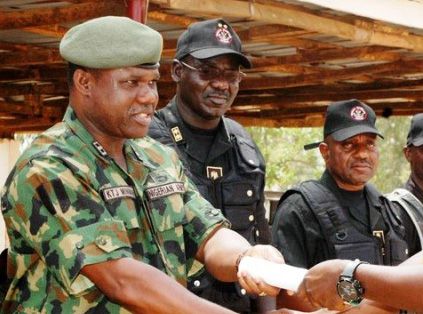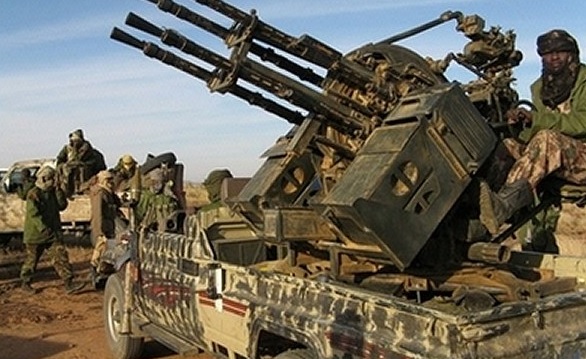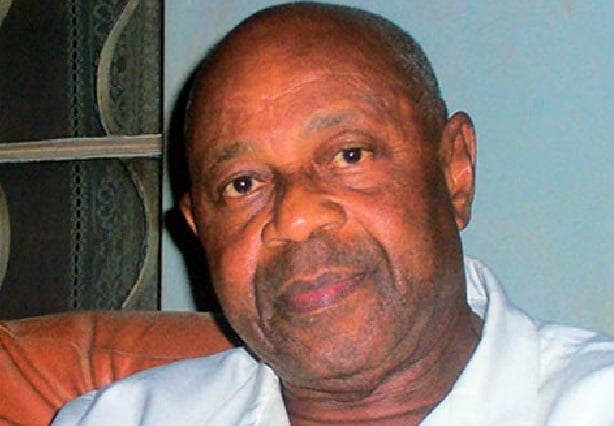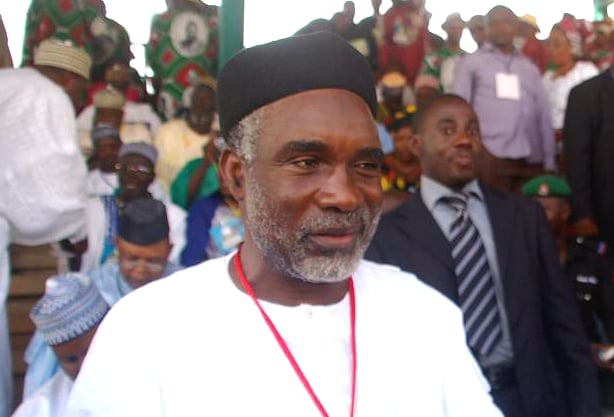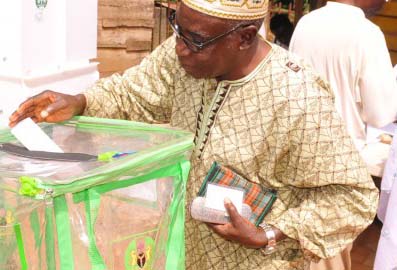In one reckless move on Tuesday, Sani Kukasheka Usman, a colonel and acting director army public relations, brought back sad memories of the days of Sani Abachi from 1993-1998. In those days, the best way to please your bosses in government was to attack the National Democratic Coalition (NADECO), the activist group that fought against the annulment of June 12 election and campaigned vigorously for an end to military rule in Nigeria.
Usman, who only recently became army’s acting spokesman, was trying to deny rumours that there was a grand plan to install an interim national government in which the chief of army staff, Kenneth Minimah (pictured), a lieutenant general, would be the head. The rumour suggests that the 2015 elections would not hold — and that even if they hold and President Goodluck Jonathan loses, he would not hand over to the winner. He would rather allow the military to take over, according to the reigning rumour on social media.
In trying to dispel the allegations, Usman revived the anti-NADECO emotion that was so prevalent in Abacha’s government. He described the rumours as “false” and “baseless” allegations by unpatriotic elements “to divide the Nigerian Army, create disaffection among its ranks and distract the service from its avowed constitutional duty of defending the territorial integrity of our great nation”. He said their efforts “are reminiscent of the NADECO days” in what must now be considered an unguarded pronouncement.
For the younger generation who may not be familiar with the NADECO story, a brief introduction. On June 12, 1993, Nigeria held a presidential election, still considered the most credible in its history. It was apparently won by MKO Abiola, the candidate of the now defunct Social Democratic Party (SDP). The military president then, Ibrahim Babangida, annulled the election and left power abruptly, installing an interim national government headed by Ernest Shonekan. This did not stop the agitation for the revalidation of the June 12 election. Nigeria was in crisis.
Advertisement
Abacha, a general, overthrew the interim government in less than 100 days. NADECO was formed in 1994 by prominent Nigerians, notably Tony Enahoro, a former minister of information; Abraham Adesanya, a former senator; Dan Suleiman, a retired air commodore; and Ndubuisi Kanu, a retired rear admiral; and a host of other activists. They spoke truth to power. They risked all they had – including their lives – to confront Abacha. Inevitably, they became classified as a security threat by Abacha, and NADECO members were arrested or killed on a regular basis.
The Abacha government developed a murderous template to deal with NADECO. Anyone who did not support his government was classified as NADECO and this was usually a death sentence by a killer squad or a phantom charge of terrorism and detention in underground cells or solitary confinement. Those who escaped arrest went into exile. Enahoro, one of Nigeria’s founding leaders, was forced into exile. Abiola’s wife, Kudirat, was murdered on the streets of Lagos for being “NADECO”. Adesanya, who was in his late 70s, mysteriously escaped an assassination attempt in Lagos. Alex Ibru, publisher of The Guardian, also survived an assassination attempt in Lagos. His newspaper was classified as pro-NADECO.
Nigeria became essentially divided into two: pro-Abacha or pro-NADECO. Freedom was suspended. Media houses were bombed. Journalists were killed. All on the suspicion of supporting NADECO! The country was also essentially divided into two: north vs south. There was palpable tension in the land, leading to fears of a civil war or a break-up of the country. Pro-democracy activists were routinely arrested and tortured, while some were killed or kidnapped, never to be seen again. In fact, NADECO leaders were accused of planting bombs, even though the suspicion was that it was the Abacha government that was planting the attacks to frame the activists.
Advertisement
To many Nigerians, NADECO was a body that should take the largest credit for the restoration of democracy in Nigeria as it effectively mobilised the local and international community to put pressure on the military to leave power. Its leaders sacrificed their lives, property and their liberty to confront the military at a time it was very comfortable to make money from Abacha by endorsing his self-perpetuation plot. Abacha’s men were so paranoid about NADECO, with Wada Nas, his minister of special duties, particularly detailed to be making provocative statements about NADECO and the southern Nigeria.
Usman has demonstrated an abjectly poor sense of history with his denigration of NADECO at a time Nigeria is trying to celebrate another landmark in its democracy. He is opening old wounds with his reference to NADECO in the current circumstances. NADECO did not represent evil to lovers of democracy. It only represented evil to Abacha and his cohorts who trivialised democracy and persecuted pro-democracy activists in Nigeria. For Usman to, in an official statement, whip up the anti-NADECO sentiments again, it is obvious that he does not possess the broadmindedness and sense of history needed to do the sensitive job in his hands.
And Usman may be too young to know that some of those who are supporting his commander-in-chief today all suffered under Abacha after being tagged NADECO. Olu Falae, chairman of the new Social Democratic Party (SDP) which has endorsed Jonathan for the February 14 presidential election, was once slammed into jail by Abacha who framed the economist in a bomb blast that killed the chief security officer of the Murtala Muhammed International Airport, Dr. Sola Omatsola. Falae is lucky to be alive today and supporting Jonathan.
Or is Usman working against the interest of his commander-in-chief?
Advertisement
Add a comment
